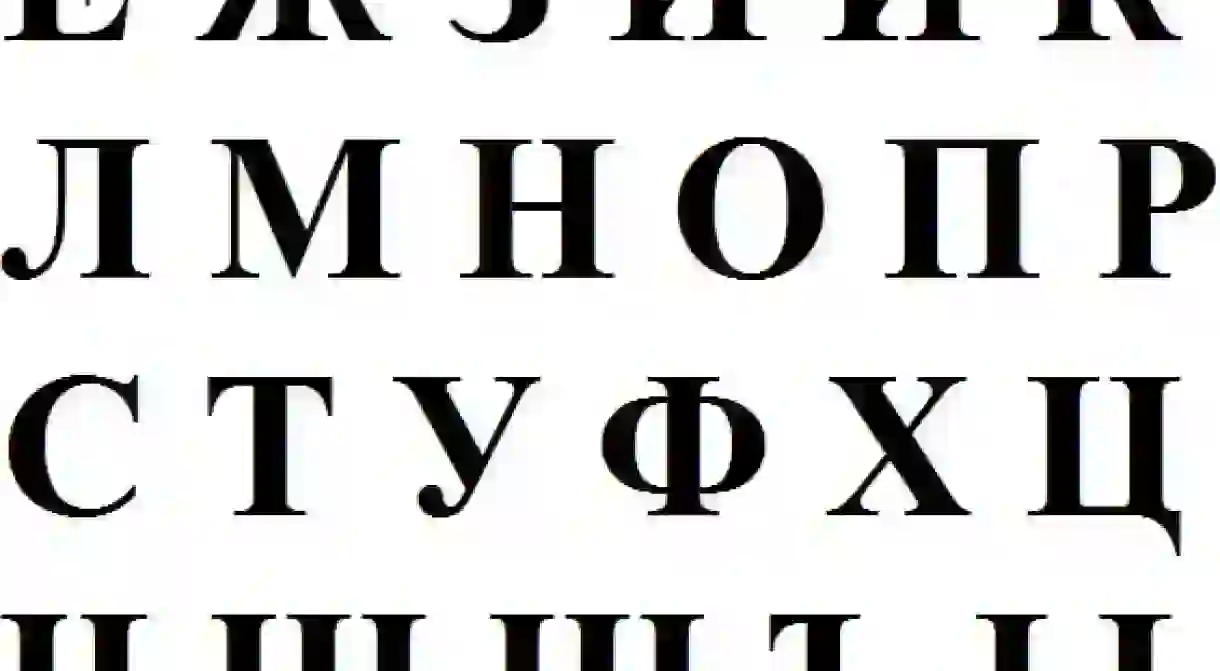Russian Words That Can't Be Translated Into English

There is a cultural specificity inherent in all languages that sometimes not even Google Translate can easily decipher. As a nation with a history of literary brilliance and a strong sense of cultural character, it’s not surprising that Russia has a few words that only exist in its language, despite a handful of foreign words and phrases coming close. Here are 11 Russian words that always get lost in translation.
Poshlost (posh-lost) / false platitude
The direct English translation for this one is platitude, a moralistic cliche. However, platitude doesn’t really work here. Poshlost is used to describe something that is uncultured and inherently shallow, superficial, as well as tacky. Think of ostentatious and trashy displays of wealth and materialism. Unsurprisingly, poshlost struggles to retain its intensity when translated into other languages. In Lolita, author Vladimir Nabokov’s attempt at explaining the word is that it is ‘not only the obviously trashy but also the falsely important, the falsely beautiful, the falsely clever, the falsely attractive’.

Tosca (tos-ka) / melancholy
The word melancholy comes close to the meaning of tosca; however, it doesn’t manage to convey the depth and shades of existential sadness or yearning that someone can feel for no real reason, which is communicated through this particular Russian word. Tosca can range from ‘great spiritual anguish’ to a ‘dull ache of the soul’. So, the closest English translation would be extreme melancholy.

Opokhmelitsya (a-pokh-mi-lit-sya) / to become obsolete
This word’s English translation is ‘to become obsolete’. Given that opokhmelitsya is used in hangover contexts, it seems culturally appropriate that Russians have such an existential phrase about lessening a hangover. Opokhmelitsya is when you drink more alcohol to take the edge off recovery, similar to the English phrase, ‘hair of the dog‘, although this describes the medicinal next-day drink noun, rather than the act of consuming said medicinal drink, or drinks.

Pochemuchka (pa-che-mooch-ka) / someone who’s insatiably inquisitive
Although this word is specific to Russia, every culture in the world has these. In fact, we’ve all probably been one at some stage of our lives. The root of the word is pochemu, which is Russian for why. So a pochemuchka is a curious little child or someone with an insatiable inquiring mind who asks ‘why’? all the time, to the point when it starts to get annoying.

Nedoperepil (nye-do-pe-rе-pil) / someone who should, but can’t, have more to drink
Every language has formal and informal words to describe degrees of drunkenness, from tipsy, to drunk, to blotto. Nedoperepil also conveys a particular degree of drunk. The literal English translation is to underperform. In a drinking context, it means over-under-drunk, or when someone thinks they could have had more to drink. Specifically, it is when someone has drunk more than they probably should have, but less than they wanted to.

Sushnyak (soosh-nyak) / dry throat
Another hangover related word born out of a nation with a vigorous drinking culture, sushnyak is a wonderful word partly due to its pithiness. With just two syllables, Sushnyak describes that horrible dry throat we get upon waking after a night of heavy drinking. It is a universal experience among drinkers, but few can communicate it with such incredible brevity.

Beloruchka (bye-lа-rooch-ka) / someone who won’t get their hands dirty
The root of this word is a variant of white, similar to Belarus, which translates to ‘White Russia’, and so beloruchka refers to a ‘person with white hands’. It describes someone who doesn’t want to do any dirty work. So beloruchka has a bit of a lazy connotation to it, and is similar to the idea of someone who ‘doesn’t want to get their hands dirty‘ as well.

Yurodivys (yoo-ro-di-vyi) / holy fool
Yurodivys means ‘Holy Fool‘, which does semantically translate well, but perhaps holy fools are quite a culturally specific concept. In ancient Russia, Yurodivys were people who voluntarily renounced earthly pleasures in the name of Christ. They led nomadic lifestyles and strove to obtain inner peace and defeat pride, which they saw as the root of all sin. They were respected and considered close to God, in a similar way to that of a prophet; however, Yurodivys were thought to reveal truths as well.

Bespredel (byes-pre-dyel) / lawlessness
The direct translation of this word, lawlessness, is frequently used in the English language. However, bespredel has a much wider scope than lawlessness, which includes degrees of deviancy and rebellion. Bespredel refers to the behaviour of a person who violates the law, as well as moral and social norms. The word emerged out of prison slang used to describe inmates and corrupt wardens.

Bytie (Byi-ti-yi) / to exist
Another fairly existential word on the list, the root of this word is actually Russian for’to exist’. As a concept, it translates to a state of being, but it is a bit more exact than just that. Bytie is used to communicate the existence of an objective reality that is independent of human consciousness. Think of the concept explored in the movie, The Matrix.

Read more about the Russian language with our article on beautiful Russian last names and their meanings.













